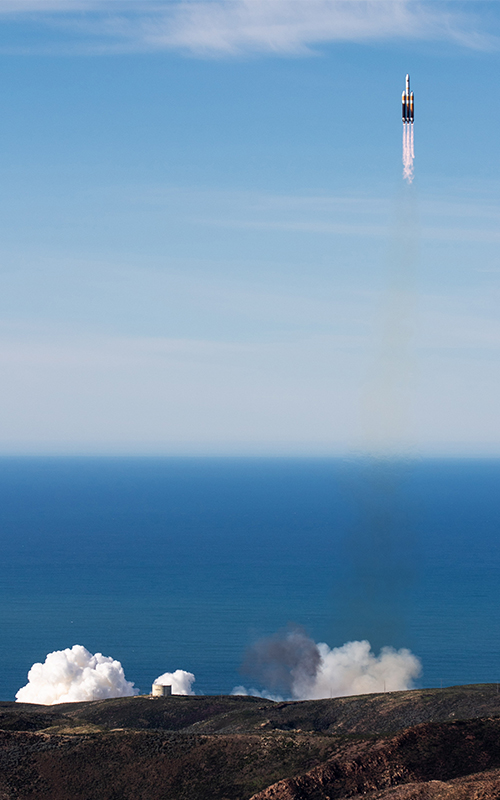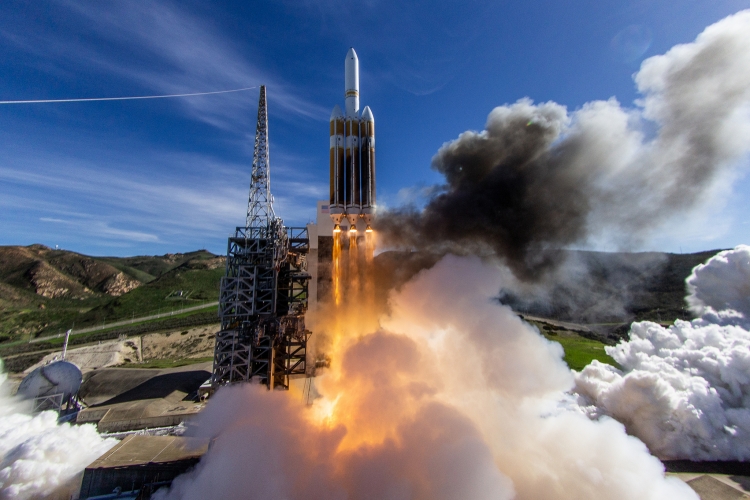
Sometimes in the launch business, we find ourselves explaining that even though it looked easy, a lot of hard work went in to making it look that easy. That was not necessary this past Saturday, when a national security payload was successfully launched on a Delta IV Heavy launch vehicle from SLC-6 at Vandenberg Air Force Base. This was the fifth launch attempt over the last six weeks for this mission, since the initial attempt on Dec. 7. That first attempt was scrubbed due to a ground system problem and an attempt the next day was scrubbed by a vehicle issue resulting in a delay to Dec. 18. On that attempt, ground winds delayed the launch to Dec. 19, when a hydrogen leak caused the slip to Jan. 19.
Finally, however, the vehicle was ready and after almost a week straight of clouds and rain, Saturday morning dawned clear and beautiful on the central California coast. It was by no means calm during the countdown, however, as the team worked through multiple issues starting with issues moving the mobile service tower, multiple ground and vehicle systems issues, and high ground winds throughout the count. Shortly before the beginning of the T-4 minute terminal countdown, however, the final issues were resolved, the winds began to trend downward, and by liftoff, conditions were perfect. The rocket placed the payload precisely into its intended orbit.
Dr. Mark Brosmer, general manager of the Launch Operations Division, summarized the experience by saying: “This mission really reminded us how difficult space launch really is, and why we need to stick to our mission assurance processes and standards. It was a great team effort, requiring dedication and perseverance.”
It was the 132nd consecutive successful ULA launch, the 38th Delta IV launch and the 11th Delta IV Heavy vehicle. The next NSS launch will be the WGS-10 mission on a Delta IV M+(4,2), scheduled for March 13.

